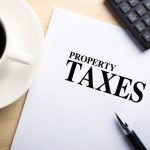Commercial property taxes can be confusing for any Texas property owner. At the Hegwood Group, we are a team of property tax consultants dedicated to answering the hard questions about state property tax.
If you have a property tax question, we’re here to help! Check out some of the most common questions we hear related to Texas property taxes.
How are Commercial Property Values Decided?
Your local Appraisal District examines properties according to their physical characteristics, like size, construction type, location, and use. The district may look at a property yearly or at least once every three years.
Generally, the appraised value derives from a property’s fair market value. This figure represents what a property would sell for on the open market when the buyers or sellers are not under duress. Appraisers calculate this number by looking at sales data for similar properties in the area. Real estate professionals call this looking at comparables or “comps.”
Commercial property tax values do not always fit neatly into analyses of comparable transactions. For example, income generated by productive lands, like agricultural land, guides valuation instead of market value for the land. In other situations, a commercial property may not have anything comparable to it in the area.
Why Did My Commercial Property Tax Go Up?
Texas law obligates the Appraisal District to make decisions based on documented factors, such as:
- Increase in surrounding commercial property values due to sales data
- Increase in revenue from productive lands
- Improvements, like remodeling or new buildings
- Corrections to property records that contained errors negatively affecting value
How Do I Protest Property Tax in Texas?
Although commercial property tax is supposed to be based on objective factors, tax appraisals can be wrong due to errors or misinterpreting facts. You should receive your Notice of Appraised Value in late April or May.
Upon receiving a new value determination that you disagree with, contact your Appraisal District as soon as possible. The district grants a short window of time, mostly from May through July, to process protests before the new valuation becomes final.
Your first step is to discuss the issue with the district. The district may acknowledge a mistake and fix it.
If that fails, you need to file a Notice of Protest with the Appraisal Review Board (ARB). You may find it useful to speak with a property tax consultant in Dallas before making contact with the district.
How Does the ARB Make Decisions?
The people serving on the board must ensure that tax values are based on factual information and applied equally across all properties. They are private citizens who live in the district and are appointed by the district’s board of directors.
During your tax protest hearing, you or your representative present the reasons you found the valuation in error. Your presentation should be concise. The board may limit the time for each hearing. Be sure to focus on documented facts. You may show photographic evidence if it helps your case.
The district’s chief appraiser also presents the reasons for arriving at the valuation. The district is responsible for proving its valuation’s validity with the preponderance of the facts.
After considering both sides, the ARB issues a ruling. If the district appraiser has not met the burden of proof, the board is supposed to rule in the property owner’s favor. Regardless of the outcome, an ARB’s ruling applies only for one year.
Can I Appeal an ARB Ruling?
If the hearing does not go your way, you may continue your protest either in district court or through binding arbitration. You should weigh the expense of this continued action against the strength of the facts concerning your property.
Learn More About Property Tax in Texas With the Hegwood Group
The state operates under a complex set of rules for determining tax valuations. As a commercial property owner, ensuring a fair assessment is vital for your profits and protecting your commercial property investment.
At the Hegwood Group, a property tax consultant in Dallas, we examine your current valuation and look for opportunities to challenge the decision of the Appraisal District. Contact us today to learn more about how we can help you save money on your annual property taxes.




